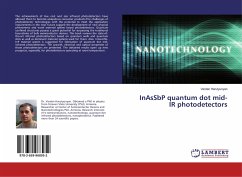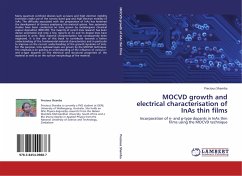As electronics get increasingly small it becomes critically important to control processes and interactions on the level of single electrons and holes. Ultimately, future generations of electronics may store information in the spins of single confined electrons and holes. Quantum dots provide an ideal material for locally confining these single charges. To control interactions between spins in separate quantum dots, the dots will need to be located close to one another and the coupling between the dots must be turned on and off in situ. Vertically stacked quantum dots provide an ideal test bed for studying these interactions because molecular beam epitaxy techniques allow for precise control over the dimensions and spatial proximity of the dots. Ultimately, however, it will be impossible to access individual QDs in a vertically stacked column. Laterally ordered dots will enable the deposition of electrical gates that can individually control each dot and the coupling between them. In this book we are looking at the fundamental mechanisms of coupling between laterally ordered dots and how the coupling depends on material structure.








